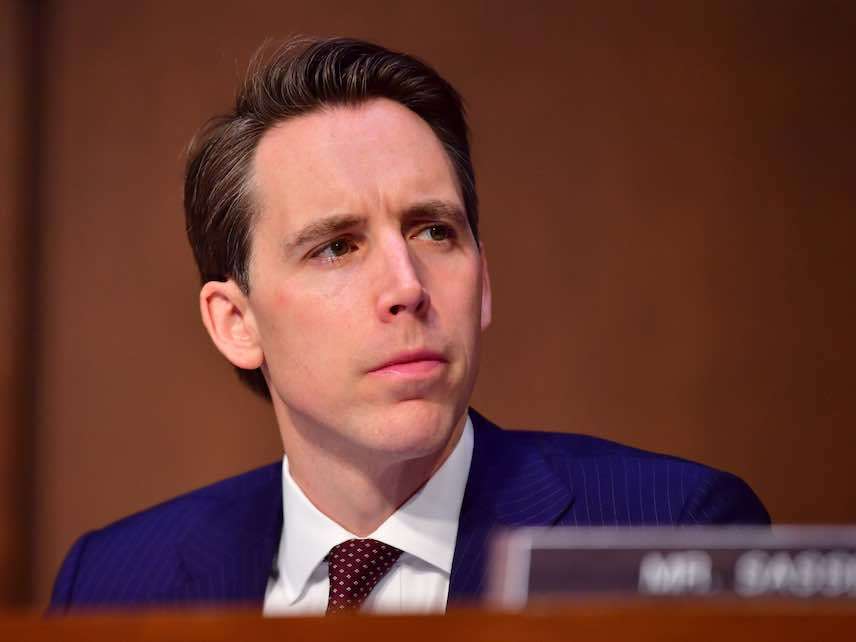Sen. Josh Hawley Rails Against 'Big Tech,' Anti-Conservative Bias, and Section 230
"Google and Facebook should not be a law unto themselves. They should not be able to discriminate against conservatives."

In his brief remarks Friday at the Conservative Political Action Conference, Sen. Josh Hawley (R–Mo.) accused "big tech" companies of discriminating against conservative voices—and called for the government to do something about it.
Hawley was interviewed on the CPAC main stage by The Wall Street Journal's Kimberly Strassel. He made clear that he believed purportedly anti-conservative big tech companies needed to be regulated.
"Google and Facebook should not be a law unto themselves," he said. "They should not be able to discriminate against conservatives. They should not be able to tell conservatives to sit down and shut up."
Hawley's proposed solution to this problem—which is not, in fact, a solution at all—is to meddle with Section 230 of the Communications Decency Act, which shields internet platforms from certain sorts of lawsuits. Section 230 treats companies like Facebook and Twitter as neutral platforms rather than publishers; if someone posts a libelous comment on Facebook, that person can be sued, but Facebook cannot. It is no overstatement to say that Section 230 is what allows the internet to exist in its current form. If content providers were to lose this protection, they would invariably default toward censoring all kinds of speech.
Thus, it is not at all obvious that an internet without Section 230 would be friendlier to conservative viewpoints, since this would actually give platforms even more cause to police speech. Strassel raised this issue with Hawley, saying "there are libertarians and some conservatives who say if you change Section 230, if you impose liability on them for anything anybody says there, they are going to go after even more conservative voices."
Hawley didn't really address this concern, but he did try to deflect libertarian opposition by framing Section 230 as a kind of special government-granted perk. He repeatedly called it a "sweetheart deal" between big government and big tech. It is of course true that big tech companies receive all sorts of illegitimate favors from government—for example, the hideous subsidies designed to lure Amazon to Arlington, Virginia. But Section 230 is very different. It conveys a sort of protection that more content providers ought to enjoy, from a maximally libertarian free speech perspective.
This is not the first time Hawley has expressed interest in modifying Section 230, and some within the White House share this desire. Again, torpedoing Section 230 protections for Facebook, Twitter, and Google would do very little to protect conservatives from unequal treatment—though it would make life much harder for these companies. That, I suspect, is the actual goal: revenge.
For a great explanation of why changing Section 230 is a bad idea, see this old Popehat article.


Show Comments (63)